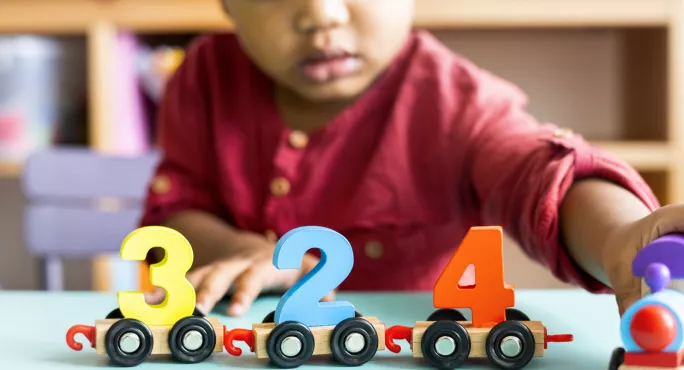Why later EYFS start ages around the world offers hope

With much of the world still in lockdown and a large percentage of children unable to attend school, many people are nervous about the education of young children.
This is particularly the case in the UK, where the government is showing a lot of concern over lost learning and the need to catch-up.
Yet for the youngest learners, the situation may not be as severe as is feared - especially when we consider how other nations approach EYFS and early primary education.
Early start?
In England, children begin formal schooling and teaching of numeracy and literacy at age 4.
While the British curriculum and school system produce excellent results, is such a young start to academics necessary?
To start, there is the factor of the birth month to consider. When a new cohort of four-year-old children begins school, some of those children have only just had their birthday, while others are on the precipice of age 5.
Objectively this allows for almost a year’s developmental disadvantage. While there are many other factors that also come into play, much research has found that on average, children who are older when compared to their younger peers tend to advance faster academically in the early years of school.
Taking this into account, it is unsurprising that, children in many other high performing countries start formal school at a later age.
Later starts
For example, in Australia, the compulsory school age is 6 and school begins in January. This is a year and a half behind children from the UK. I once had a student in my Year 2 class who returned to Australia from China in December.
This meant she went from mid-way through Year 2 to the beginning of Australian Year 1.
Many European countries - for example, Germany, Belgium and Italy have age 6 - as the legal age to begin school.
Some researchers from the UK (including David Whitebread from the University of Cambridge) have even advocated the extension of informal schooling in the UK until the age of 7.
While this might seem extreme to the British public, some of the most successful school systems in the world, such as Sweden and Finland, begin school at this age.
Cultural impacts
This is a reassuring thought during a time of delayed education, however, it is also important to think about outside factors: cultural differences, family values for education, parental and sibling interaction at home, and more.
Additionally, this does not mean that learning does not take place prior to this age - quite to the contrary, in fact.
In Finland and Sweden, as noted, formal education does not begin until age 7, but before this point, many children attend preschool, where fundamental skills are learned through play-based learning.
Play-based learning, which you’ll find in the UK in the early years and Year 1, helps engage students in their education and has cognitive, physical, social, and emotional benefits.
Too much testing
So why does it lose prevalence early in many British schools? One of the reasons could be the UK focus on testing.
While in England, children are tested in Year 2 and Year 6, other countries don’t require standardised tests until children are secondary school age. In Finland, for example, teachers use tests to assess the curriculum as well as the students.
The argument could be made that this method would reduce the culture of teaching to the test.
Although tests have merit in showing the bank of a child’s knowledge at a particular point in time, many education systems, like in the US, have a higher focus on teacher assessment and project work.
Show a little faith
But what does all of this mean for the world today?
While it is important to remember the significant cultural and familial differences in other countries, with the right mindset and good quality interaction at home, a delayed school starting age does not necessarily have to lead to mass disadvantage.
Children are amazing and develop at different rates. With effort and family support, I have watched children who have entered Year 2 with no formal schooling learn with amazing pace, make superb jumps in their understanding and on fantastic trajectories.
Perhaps this thought could offer some hope for the future.
Gemma Tonge is a primary teacher at a British International school in China. She has taught internationally for three years.
You need a Tes subscription to read this article
Subscribe now to read this article and get other subscriber-only content:
- Unlimited access to all Tes magazine content
- Exclusive subscriber-only stories
- Award-winning email newsletters
Already a subscriber? Log in
You need a subscription to read this article
Subscribe now to read this article and get other subscriber-only content, including:
- Unlimited access to all Tes magazine content
- Exclusive subscriber-only stories
- Award-winning email newsletters